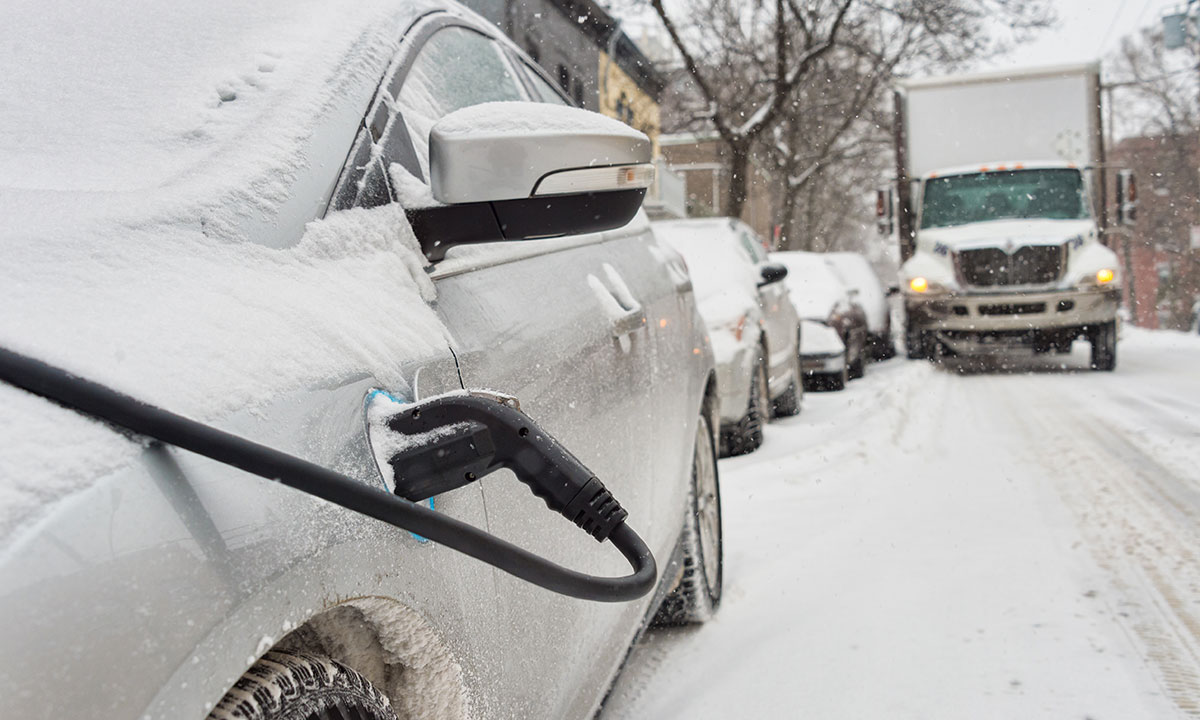Be up front with your customers about the impact of winter on your EV’s performance and you’ll build a lasting trust
As most Canadians are seeing the last bits of snow melt and are starting to install their summer tires, one may think that we can all completely forget about winter until it’s time to put those winter tires back on again next fall. While most Canadians can do just that, savvy EV dealerships won’t fall into this trap.
For our sector, these issues have been problematic on many levels. After all, as consumers turn their attention to the prospect of a new vehicle, the vast majority will visit a new car dealer lot with the intention of viewing the latest models, new technologies and features.
While many consumers may be aware of the semiconductor shortage and other supply chain challenges and their impact on the new vehicle market, that doesn’t necessarily mean they will be more understanding when it comes to limited availability and longer wait times involved with ordering a new vehicle.
So, in the face of these inventory shortages, how are we best to collectively address this particular challenge? Certainly not by burying our heads in the sand until this period of uncertainty passes. Rather, it’s by upping our game and developing an effective communication strategy that is reflective of your brand promise—to help to build trust with buyers, through proactive and personalized information.
A critical aspect of such a plan is an honest assessment of the situation, so you can communicate with customers in a manner that is realistic and creates a level of predictability.
The best EV dealerships are like good real estate agents; they don’t wait for summer customers to ask winter questions.
As we continue to endure inventory shortages, other important aspects of your strategy should be focused on addressing the current needs of customers. In many cases, a dealer’s business development centre is serving as a form of ongoing customer concierge—identifying customers who will likely need service soon and then delivering personalized messaging at the right time to entice customers to act.
It’s also critical that dealers identify prospective buyers before they return to the market by engaging them about the prospect of tailored offers and financial deals that may speak to the buyer’s unique situation before they go price shopping.
Every dealer across the country has their usual set of touchpoints they typically leverage to contact customers. Whether it is regular emails, SMS text campaigns or something more old school, your customers expect to hear from you in certain ways.
The key element of success here is communicating with a personal touch, engaging customers in a manner that addresses their unique needs.
Especially important is capturing customer feedback following a dealership visit for sales or service—dealers that have fine-tuned a strategy to deliver excellent customer reviews to their Google business, Facebook, website listings and more can stand out from the crowd, helping win new customers by positively influencing word-of-mouth.
The present situation is by no means ideal for dealers or consumers. Buying a new car should be an exciting time for consumers, and the current challenges are frustrating for all involved. Collective patience and thoughtful engagement will be key, until we return to some level of normal.




